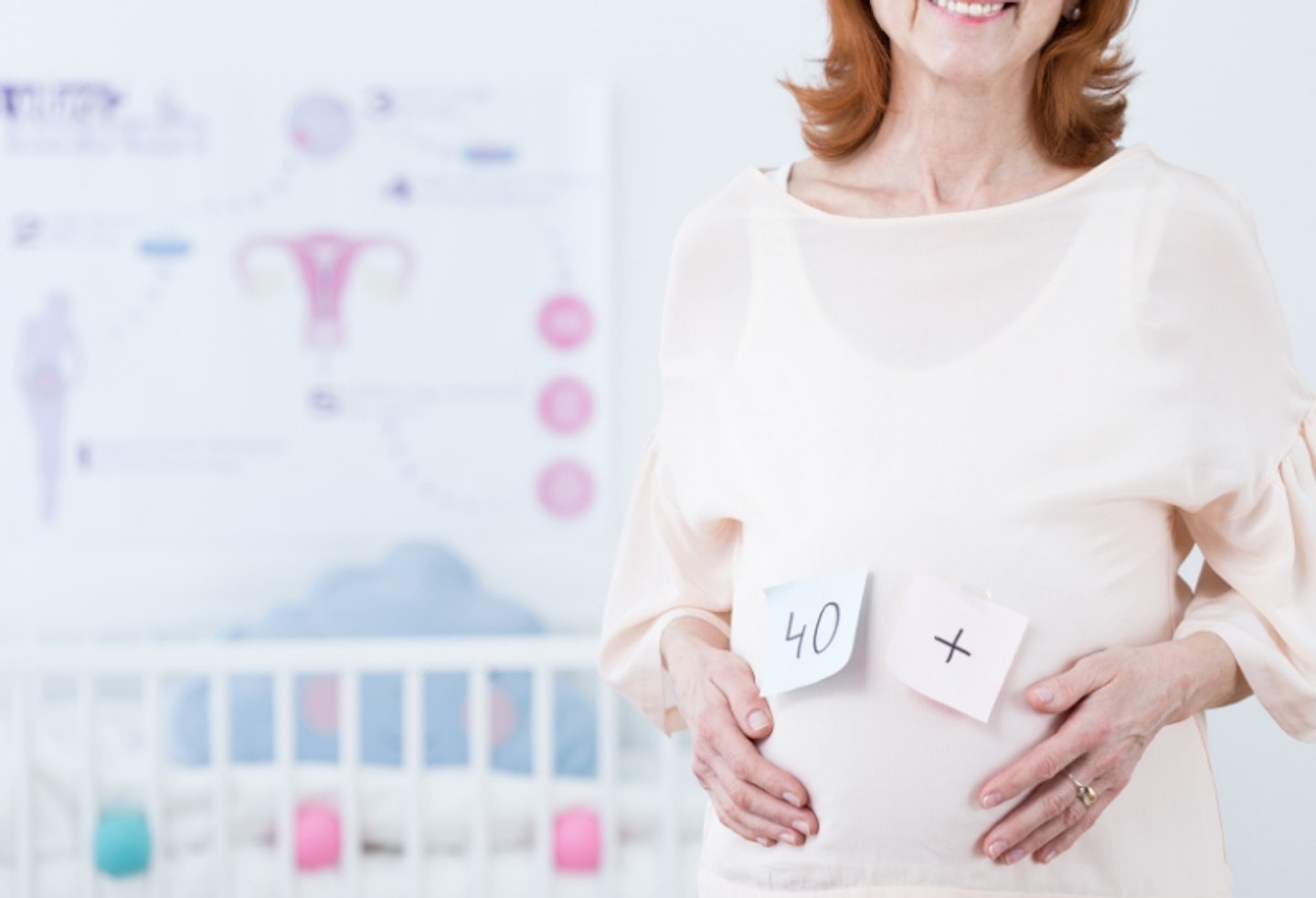Whilst everyone hopes that when the time comes to try for a baby, it will be a smooth and easy experience, unfortunately for many couples, this is not always the case. In fact, the NHS estimates that 1 in 7 couples will have difficulty conceiving, which equates to approximately 3.5 million people in the UK.
If you are struggling to fall pregnant, it can understandably be an emotional and stressful time, particularly as infertility is often symptomless, meaning it can be hard to comprehend that something is wrong.
With this in mind, here, Dr Jordi Suñol, an expert at the Internationally leading gynaecology and assisted reproduction centre Institut Marques, provides some expert insight on some of the main reasons why couples may be struggling to conceive.
6 reasons why you may be struggling to conceive:
Reasons why you might be struggling to conceive
 1 of 6
1 of 61) Age
Dr. Jordi Suñol says: “The most common form of female infertility is age. In today’s career driven society, more and more women are making the decision to try for a baby later in life, meaning that this issue is more prevalent than ever. As you get older, your ovaries will age just like the rest of your body, and the quality of your eggs will slowly start to deteriorate, which means that they are harder to fertilise. The age of 35 is when the odds of conceiving will start to decrease more rapidly, and you are more likely to require fertility treatment if you would like to have a baby.
Whilst a woman’s age is the most important factor when it comes to trying for a baby, a man’s age can have an impact too. Similar to a woman’s eggs, the quality of a man’s sperm decreases with age and it therefore takes longer for his partner to get pregnant if he is older.
 2 of 6
2 of 62) Semen quality
Dr. Jordi Suñol says: “Approximately 90% of male infertility cases are due to low sperm count or poor sperm quality. In the majority of cases, this is linked to genetics, but there are also a number of other factors that can have an impact on sperm quality, including varicocele (an abnormal collection of bulging veins above the testicle), an undescended testicle, infections, genetic abnormalities, and hormone problems.
It is thought that POPs (persistent organic pollutants) can have an impact on male fertility. These are chemical substances which are generated by humans - usually as a result of industrial processes, and include pesticides, industrial chemicals and by-products of manufacturing and combustion processes.
Through industrial processes, these substances are widely dispersed into the environment, and it takes decades for them to degrade - polluting air, water, plants, land and animals in the meantime.
In addition to polluting the environment, POPs can also dissolve into human fat, which is known as lipophilicity. When dissolved into fat, some POPs act as oestrogenic endocrine disruptors, which means they behave in the same way as female hormones, even if found in males. This can have an impact on a man’s hormones and cause several problems, including infertility, testicular cancer, prostate cancer and urogenital malformations. The reason this happens is because POPS can alter the endocrine system, the collection of glands that produce hormones, leading to abnormalities.
As well as having an impact of male hormones, endocrine disruptors can increase oestrogen levels in pregnant women, which can affect embryo-foetal development. Specifically, in relation to early male development, this can have an impact on how the testicle develops and consequently its ability to produce sperm.
Alongside all the above, lifestyle factors are also believed to play a role in damaging sperm quality. For example, for sperm to be produced healthily, a specific environment is required - 4 degrees cooler than body temperature. Therefore, if sperm are exposed to elevated temperatures they begin to die. If this heat exposure is prolonged, it can affect the sperm production process. Exposure to heat can come in the form of saunas, resting a laptop on your lap, or working in warmer environments – such as a restaurant kitchen. It is therefore important for men who work in these environments to consider the prolonged impact of heat on their fertility.”
 3 of 6
3 of 63) Size of the Uterine Cavity
Dr. Jordi Suñol says: “A lesser known cause of infertility is the size and shape of a woman’s uterine cavity. If the volume of the uterine cavity differs from the norm, or a woman has a malformed ‘Tshaped’ uterus, then it can cause problems with conception, and is also associated with failed implantation, increased risk of ectopic pregnancy, and increased chances of miscarriage.
If this is the cause of infertility, there are treatment options are available which can help rectify the problem. A straightforward operation called a ‘Hysterocopic Metroplasty’ can be carried out to remove the excess tissue, and widen the cavity. In most cases, this procedure will offer a long-term solution to the problem however, unfortunately in some cases the uterus cavity will revert to its previous size, and will require further treatment.”
 4 of 6
4 of 64) Obstruction of the Fallopian Tubes
Dr. Jordi Suñol says: “Another major cause of infertility in females is due to a blockage within the fallopian tubes. If one or both fallopian tubes are blocked, then the egg cannot reach the uterus, and the sperm cannot reach the egg - thus preventing fertilisation and therefore, pregnancy. This condition is known as ‘tubal factor infertility’.
Approximately 25% of female infertility cases can be linked to problems with the fallopian tubes – most often due to an infection such as Pelvic Inflammatory Disease, or an inflammation of the endometrium.
There is also a risk that the fallopian tubes can become partially blocked, which then increases the risk of ectopic pregnancy.
There are options available to women who suffer from tubal factor infertility – this can either be in the form of tubal repair surgery, or IVF which bypasses the fallopian tubes altogether and can often prove very successful for women with this condition.”
 5 of 6
5 of 65) Endometriosis
Dr. Jordi Suñol says: “Endometriosis is a medical condition which occurs when the tissue lining of a woman’s uterus (called the endometrium) grows in other areas of the body - does not necessarily cause infertility however, depending on the patient and the severity of the condition, it can create some challenges.
As the severity of the Endometriosis increases, scar tissue (also known as adhesions) is more commonly found - and so the chance of natural conception decreases. This is because the increased number of adhesions means there is higher possibility the egg will get trapped and prevented from travelling down the Fallopian tube.
Severe cases of Endometriosis can also cause pelvic scarring and distortion of the pelvic anatomy, which reduces the chance of natural conception.
Endometriosis is classified into minimal, mild, moderate, and severe using the American Fertility Society Revised Classification of Endometriosis (AFS) score, and this score helps dictate the chance of conceiving naturally. Surgery to remove Endometriosis tissue is available, and can help improve your chances of getting pregnant - although there's no guarantee. In addition, for women suffering with more severe forms of the condition, there are a number of assisted reproductive treatments which can be tried in order to help achieve a pregnancy - such as IVF (In Vitro Fertilisation) and IUI (Intrauterine Insemination).”
 6 of 6
6 of 66) PCOS (Polycystic Ovary Syndrome)
Dr. Jordi Suñol says: “PCOS is a hormone related problem caused by small cysts growing on a woman’s ovaries, which subsequently cause a hormone imbalance.
Although the hormone imbalance associated with PCOS can impact the regularity of women’s periods, and subsequently create challenges when trying to conceive, this does not mean to say that conception is completely impossible.
Some women with PCOS will be able to conceive naturally, whereas others may require medical help or an assisted reproduction treatment, such In Vitro Fertilization (IVF) treatment.
If you suffer from PCOS and are trying to get pregnant then it is recommended that you visit a fertility specialist. They will be able to give you a fertility MOT before advising on the best cause of medication, should it be necessary.”
For further information or to speak to one of the expert team from Institut Marquès please contact: institutMarquès@pha-media.com/020 7440 0367
